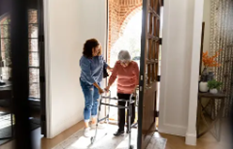 The United States is in the midst of a historic demographic shift. According to recent U.S. Census data, between 2020 and 2024, the number of adults aged 65 and older grew by 13%, while the population under age 18 declined by 1.7%. Perhaps even more striking: 11 states now have more older adults than children — up from just three states in 2020.
The United States is in the midst of a historic demographic shift. According to recent U.S. Census data, between 2020 and 2024, the number of adults aged 65 and older grew by 13%, while the population under age 18 declined by 1.7%. Perhaps even more striking: 11 states now have more older adults than children — up from just three states in 2020.
This trend is reshaping families, communities, and the way our society must think about care. With fewer younger relatives available to provide support and more older adults choosing to age in place, the need for professional caregiving is growing at an unprecedented rate.
What This Means for Families and the Care Industry
As the ratio of older adults to younger caregivers continues to shift, many families are finding it increasingly difficult to balance the demands of work, parenting, and caring for aging loved ones. At the same time, older adults are expressing a strong preference to remain at home rather than move into long-term care facilities.
The result is a greater reliance on professional home care — not just as supplemental support, but as essential partners in ensuring quality of life, safety, and independence for older adults.
Why Home Care Matters More Than Ever
Home care offers families peace of mind, knowing that their loved ones can receive personalized, one-on-one assistance in the comfort of their own home. For older adults, this support ranges from help with daily activities and medication reminders to companionship and specialized care for conditions like dementia.
As the aging population expands, professional caregivers are filling a critical gap. Home care helps relieve the pressure on families, health systems, and communities — providing a sustainable, compassionate solution for a nation in demographic transition.
Family & Nursing Care: A Trusted Partner for Today and Tomorrow
At Family & Nursing Care, we recognize the challenges and opportunities this demographic shift brings. With more than 57 years of experience, we are uniquely positioned to meet the growing demand with responsive, compassionate, and highly coordinated services. Families can rely on us 24/7/365, knowing that we are always just a phone call away.
“The demographic trends are clear: we are moving into an era where professional caregiving will be central to how families support their loved ones,” said Mitch Markowitz, Vice President of Business Development at Family & Nursing Care. “Our role is to step in as a trusted partner, ensuring older adults can age with dignity while families can focus on their relationships, not just the responsibilities of care.”
As the number of older adults continues to rise, care planning has never been more urgent. Families who prepare today will be best positioned to navigate the future with confidence and peace of mind.
Learn more about how Family & Nursing Care can support your family by visiting our Home Care Services webpage.
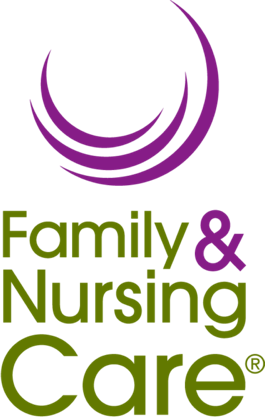

 At Family & Nursing Care, our mission is to help older adults age with dignity, comfort, and connection. That commitment extends to every aspect of our work and is at the heart of the Family & Nursing Care Foundation.
At Family & Nursing Care, our mission is to help older adults age with dignity, comfort, and connection. That commitment extends to every aspect of our work and is at the heart of the Family & Nursing Care Foundation.
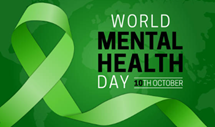 On October 10, the world comes together to recognize World Mental Health Day, a time to reflect on the importance of mental well-being for people of all ages. With more than 1.4 billion people expected to be 60 or older by 2030, it is critical to acknowledge the unique mental health needs of older adults — and highlight the opportunities that come with aging.
On October 10, the world comes together to recognize World Mental Health Day, a time to reflect on the importance of mental well-being for people of all ages. With more than 1.4 billion people expected to be 60 or older by 2030, it is critical to acknowledge the unique mental health needs of older adults — and highlight the opportunities that come with aging. Across the country, the workplace is changing once again. Many companies — including federal agencies and private employers — are requiring employees to return to the office, either full time or on a hybrid schedule. For families who have been balancing work-from-home flexibility with caregiving responsibilities, this shift can create a ripple effect in their daily routines.
Across the country, the workplace is changing once again. Many companies — including federal agencies and private employers — are requiring employees to return to the office, either full time or on a hybrid schedule. For families who have been balancing work-from-home flexibility with caregiving responsibilities, this shift can create a ripple effect in their daily routines.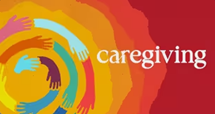 A powerful new PBS documentary, Caregiving, executive produced by Bradley Cooper, brings national attention to an often overlooked yet essential part of life in America: the care we provide for our loved ones. Through moving stories of both professional and unpaid family caregivers, the film reveals the emotional, physical, and financial challenges that come with caregiving — and the profound impact it has on families, communities, and our country as a whole.
A powerful new PBS documentary, Caregiving, executive produced by Bradley Cooper, brings national attention to an often overlooked yet essential part of life in America: the care we provide for our loved ones. Through moving stories of both professional and unpaid family caregivers, the film reveals the emotional, physical, and financial challenges that come with caregiving — and the profound impact it has on families, communities, and our country as a whole. As the aging population continues to grow, so does a lesser-discussed group: solo agers. These are older adults aging without close family —no spouse, children, or nearby loved ones — to rely on for care or decision-making. This can often present a unique set of challenges. That’s where home care can be a safety net for this population, providing not just practical assistance but also peace of mind and critical continuity of care.
As the aging population continues to grow, so does a lesser-discussed group: solo agers. These are older adults aging without close family —no spouse, children, or nearby loved ones — to rely on for care or decision-making. This can often present a unique set of challenges. That’s where home care can be a safety net for this population, providing not just practical assistance but also peace of mind and critical continuity of care. In today’s fast-paced world, the need for home care can arise without warning — often in the wake of a medical crisis like a sudden fall or a hospital discharge. These events don’t happen on a schedule, and neither should access to care. Increasingly, families are finding themselves in urgent situations, needing dependable, high-quality home care in a matter of hours — not days.
In today’s fast-paced world, the need for home care can arise without warning — often in the wake of a medical crisis like a sudden fall or a hospital discharge. These events don’t happen on a schedule, and neither should access to care. Increasingly, families are finding themselves in urgent situations, needing dependable, high-quality home care in a matter of hours — not days. As the healthcare system continues to shift toward at-home programs, home care is becoming an indispensable partner in improving outcomes. From easing transitions after hospitalization to helping older adults remain safely at home, home care plays a critical role in ensuring continuity, stability, and dignity for seniors — while also alleviating strain on hospitals and long-term care settings.
As the healthcare system continues to shift toward at-home programs, home care is becoming an indispensable partner in improving outcomes. From easing transitions after hospitalization to helping older adults remain safely at home, home care plays a critical role in ensuring continuity, stability, and dignity for seniors — while also alleviating strain on hospitals and long-term care settings.

